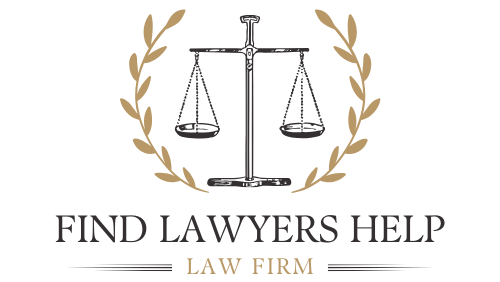
OKR Software And The Gains for Law Firms
If you’re an in-house counsel or a leader at a law firm, you may have heard about the innovative goal-setting method known as OKRs (Objectives and Key Results). But what exactly are OKRs, and how can OKR software benefit your legal team?This guide will provide you with a comprehensive understanding of OKRs and their implementation in legal settings. You’ll discover the advantages of using OKR software tailored for law firms and legal teams, along with practical tips for successful adoption.
What Are OKRs and OKR Software?
Understanding OKRs
OKRs are a structured framework designed to help teams set ambitious goals and track measurable outcomes. The “Objectives” define what you want to achieve, while the “Key Results” outline how you will measure success. For example, if your objective is to enhance contract processing efficiency, key results might include automating contract workflows by Q3 and reducing turnaround time from five days to three.OKRs foster alignment, accountability, and agility within teams. They allow legal professionals to concentrate on goals that align with broader organizational priorities. The quarterly cadence of OKR cycles enables rapid adaptation to changing circumstances, ensuring that progress is transparent and owned by the team.
The Role of OKR Software
OKR software platforms serve as centralized tools for executing the OKR methodology. They enable legal teams to:
- Visually map out their OKRs in one location
- Assign ownership of objectives and results
- Update progress in real-time
- Track performance through scoring
- Facilitate alignment across the organization
Leading OKR software solutions streamline the execution process, transforming how legal teams operate.
Why Law Firms and Legal Departments Need OKR Software
You might wonder why your legal team should adopt OKR software when you’re already utilizing digital marketing strategies for client acquisition. The answer lies in the unique benefits that OKR processes bring to legal operations:
Enhanced Focus and Strategic Alignment
OKR software helps legal teams concentrate on aligned goals by cascading focused objectives from leadership downwards. With a limited number of objectives (typically 2-5) per cycle, teams can direct their efforts toward impactful outcomes, even amidst competing demands.
Improved Productivity and Team Engagement
Research shows that only 33% of U.S. workers feel engaged at work. OKR software combats this by defining measurable results tied to deadlines, tracking public progress for accountability, and scoring objectives to encourage action. Features like gamification can also enhance motivation and productivity among legal professionals.
Better Communication and Collaboration
Silos often hinder communication within legal teams. OKR software breaks down these barriers by increasing visibility into goals and progress, aligning priorities, and providing forums for idea exchange—thereby fostering collaboration across units.
Increased Agility and Adaptability
In today’s fast-paced business environment, legal teams must remain agile. OKR software supports this agility by allowing regular reviews of objectives and key results, enabling teams to pivot as priorities change. Rapid progress updates provide real-time visibility, allowing for quick course corrections.
Implementing OKR Software in Your Legal Team
Convinced about the benefits of OKR software? Here are seven expert tips for successful implementation:
- Secure Leadership Buy-In: Gain commitment from top management to legitimize your efforts.
- Train Your Team: Ensure everyone understands the OKR methodology and its benefits.
- Align with Firm Strategy: Link your legal OKRs to broader organizational goals for maximum impact.
- Set Ambitious Yet Achievable Objectives: Encourage stretch goals while ensuring they remain realistic.
- Define Quantitative Key Results: Make sure key results are measurable through specific metrics.
- Utilize Software for Tracking: Regularly monitor progress using your OKR platform.
- Be Patient: Allow 2-3 quarters for your team to adapt to new processes.
Examples of Legal Team OKRs
Need inspiration? Here are some examples of effective legal team OKRs:
Enhance Client Satisfaction
- Objective: Improve Net Promoter Score (NPS) from 60 to 75+
- Key Results:
- Survey 50 clients on satisfaction metrics by a set deadline
- Reduce inquiry response time to under six business hours
- Conduct monthly meetings with five key accounts
- Key Results:
Increase Profitability
- Objective: Boost firm profit margins by two percentage points
- Key Results:
- Complete time & billing process improvement workshop by deadline
- Decrease write-offs due to erroneous time entries by 40%
- Achieve $100k in cost savings from contract renegotiation
- Key Results:
Overcoming Resistance to Change
Change can be challenging, especially in established environments like law firms. To gain buy-in for implementing OKR software:
- Clearly communicate the benefits of adopting OKRs.
- Involve team members in shaping initial objectives.
- Provide comprehensive training on the new system.
- Start with a pilot group to test your approach before scaling.
- Highlight quick wins to build confidence in the new process.
Conclusion
OKR platforms have proven effective across various industries, including legal services. By adopting OKR software, law firms can enhance productivity, boost employee engagement, and adapt swiftly to changes in the business landscape. Embracing this goal-setting methodology empowers legal teams to achieve greater focus and alignment with organizational objectives while delivering measurable results that drive success.
